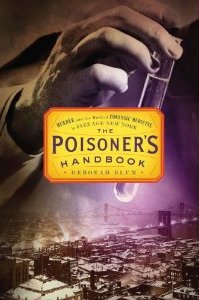“Reformed” Symbol Of Healthcare
No Comments »*This blog post was originally published at The Happy Hospitalist*


*This blog post was originally published at The Happy Hospitalist*
Misconceptions about mental health can have devastating effects on individuals, families and communities. National Alliance of Mental Illness’ Wendy Brennan talks with Dr. Jon LaPook about the importance of education and treatment.
I’ve been writing about personal genomics for years. The standard concept of it is that you can order such genetic tests online, send your saliva or buccal swab to the lab where they analyze your DNA, then you can check online what kind of diseases you have elevated or lowered risk for. That’s how Navigenics, 23andMe or Pathway Genomics works. Now Pathway had a major announcement:
San Diego based startup Pathway Genomics announced [May 18th] that it will begin selling its DNA collection kits at Walgreens drugstores beginning in mid-May, for about $20 to $30. Unlike a pregnancy test, users won’t be able to get results immediately. They will have to send in their saliva sample and then go to Pathway’s website to select the particular test they want. Users choose from drug response ($79), which assesses how well an individual can metabolize certain drugs, predicting the best dosage for that person or whether they will be susceptible to certain side effects; pre-pregnancy planning ($179), which determines whether parents carry mutations for serious genetic diseases; health conditions ($179), which assesses risk for a number of conditions, including diabetes, Alzheimer’s, prostate cancer and more; or a combination of all three ($249). The kits won’t be sold in New York because the state’s laws require medical professionals to be involved in this type of testing.
As you may know, I’m not totally against direct-to-consumer genetic testing, but I really would like to see doctors and genetic counselors in this process. I think selling such kits through drugstores can only happen in the U.S. right now. Read more »
*This blog post was originally published at ScienceRoll*
 This is going to be a quick welcome to Deborah Blum who has just moved her blog, Speakeasy Science, to ScienceBlogs.
This is going to be a quick welcome to Deborah Blum who has just moved her blog, Speakeasy Science, to ScienceBlogs.
Why quick?
Because I am only 22 pages away from finishing her latest book, The Poisoner’s Handbook: Murder and the Birth of Forensic Medicine in Jazz Age New York.
This engaging tale of the race of science and medicine against chemical poisonings for profit and punishment features the true story of NYC chief medical examiner Charles Norris and toxicologist Alexander Gettler.
Of course, the other actors are arsenic, methanol, chloroform, thallium, and radium, among others. In the teens through the mid-1930s, long before benchtop atomic absorption spectrophotometry and LC/MS instruments, Norris and Gettler devised methods to detect poisons in human tissues with high sensitivity. These advances led to the prosecution of some, the absolution of the wrongly-accused, and revealed that our own government poisoned citizens who dared to challenge Prohibition. Read more »
*This blog post was originally published at Terra Sigillata*
 This is shaping up to be a big week for the Wii in medicine — not only is the American Heart Association’s endorsement of Wii and new partnership with Nintendo making waves, but today is a day we’ve marked on our calendar for a while: Trauma Team for Wii was released [May 18th].
This is shaping up to be a big week for the Wii in medicine — not only is the American Heart Association’s endorsement of Wii and new partnership with Nintendo making waves, but today is a day we’ve marked on our calendar for a while: Trauma Team for Wii was released [May 18th].
After years of trauma center releases focusing on surgery (some of which we’ve written about here), this is the first offering that lets gamers delve into emergency and pre-hospital care.
Of course, the game runs counter to standard teachings (in one demo video we saw a practitioner abandon her airway procedures to tend to an abdominal wound) and is at least as unrealistic as prior offerings — but then again if we wanted more accuracy, we could just go to work…
Product page: Trauma Team
*This blog post was originally published at Medgadget*
It’s no secret that doctors are disappointed with the way that the U.S. healthcare system is evolving. Most feel helpless about improving their work conditions or solving technical problems in patient care. Fortunately one young medical student was undeterred by the mountain of disappointment carried by his senior clinician mentors…
I am proud to be a part of the American Resident Project an initiative that promotes the writing of medical students residents and new physicians as they explore ideas for transforming American health care delivery. I recently had the opportunity to interview three of the writing fellows about how to…
Book Review: Is Empathy Learned By Faking It Till It’s Real?

I m often asked to do book reviews on my blog and I rarely agree to them. This is because it takes me a long time to read a book and then if I don t enjoy it I figure the author would rather me remain silent than publish my…
The Spirit Of The Place: Samuel Shem’s New Book May Depress You

When I was in medical school I read Samuel Shem s House Of God as a right of passage. At the time I found it to be a cynical yet eerily accurate portrayal of the underbelly of academic medicine. I gained comfort from its gallows humor and it made me…
Eat To Save Your Life: Another Half-True Diet Book

I am hesitant to review diet books because they are so often a tangled mess of fact and fiction. Teasing out their truth from falsehood is about as exhausting as delousing a long-haired elementary school student. However after being approached by the authors’ PR agency with the promise of a…